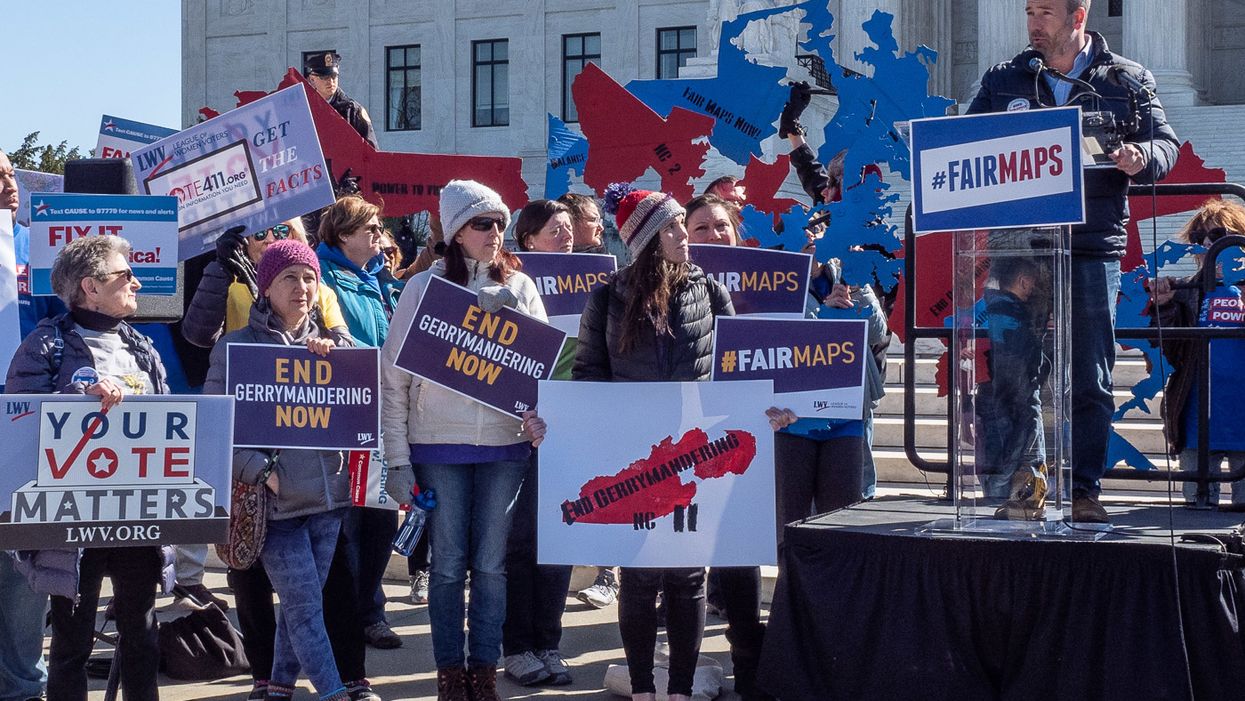Brian Cannon has been pursuing a singular goal for five and a half years as executive director of One Virginia, growing its roster of supporters from 3,500 to more than 100,000. And in November the people of Virginia look ready to reward his work: Approval looks likely for a ballot measure creating an independent commission to draw Virginia's legislative and congressional boundaries — joining 13 other states in taking such work away from politicians who would otherwise be able to pick their own voters. Cannon came to the work after winning a statewide redistricting contest in law school, although after graduating he spent a few years as a startup business consultant. His answers have been edited for clarity and length.
What's the tweet-length description of your organization?
@1VA2021 is a trans-partisan good govt org focused on ending gerrymandering in Virginia. We believe that voting districts belong to Virginians, not to any party or politician.
Describe your very first civic engagement.
When I was an undergraduate at William & Mary, there was a huge bond referendum on the 2002 ballot that would benefit higher ed in Virginia. A few friends and I saw that the only people advocating for it were college presidents and lobbyists — not any college students. We decided to change that and formed the first student-run political action committee in the country. It taught me there's a seat at the table for young voters if they do their policy homework, show up and honestly engage. Shortly thereafter we began working on textbook prices and the lack of competitive pay for our professors.
The Students PAC morphed into a wonderful advocacy organization called Virginia21 dedicated to giving young Virginians a chance to engage in state politics and policy-making.
What was your biggest professional triumph?
I hope it's ahead of me, because I am working every day to give us a chance at fair maps in Virginia in 2021. So far, the list is topped by getting the redistricting reform proposal through the General Assembly and on to the November ballot. It was the culmination in March of intense grassroots lobbying building up over several years. Approval of this reform would be historic for Virginia, for the South and for the growing movement for fair maps around the country. It will take redistricting out of the smoky backroom, put citizens with an equal say at the table, add transparency, and enshrine minority voter protections in our state constitution.
And your most disappointing setback?
There are so many little losses from which I've learned, but perhaps the most disappointing was in 2018. Like asking a thief to return the jewels, a federal court told legislators to redraw 11 state House districts it said were racially gerrymandered. Both parties came up with new maps that were still racial gerrymanders — but which served the electoral needs of Democrats and Republicans alike. It was clear to all of us watching that this wasn't how it should work, yet it happened anyway.
What was disappointing was that we had a chance to do it better. We had worked for years to persuade a number of legislators to commit to an open and transparent process with citizen engagement — but some of our best allies decided that wasn't worth doing at that point.
How does your identity influence the way you go about your work?
I'm a Democrat but view myself as a reformer first. There are so many things broken in our system: campaign finance laws, first-past-the-post voting, redistricting. I don't have answers for the big problems with our tax structure, health care system or climate — but I do know we'll never get them without honest, inclusive conversations in our representative bodies. Right now, the system is rigged to make these conversations unproductive, if not impossible.
What's the best advice you've ever been given?
College convocation speeches usually go in one ear and out the other of an 18-year-old the first week on campus, but the address when I arrived has stayed with me. Timothy Sullivan, our college president, contrasted President Kennedy's pro-government inaugural address in 1961 ("Ask not what your country can do for you; ask what you can do for your country") with President Reagan's anti-government inaugural address in 1981 ("Government is not the solution to our problem; government is the problem"). And he said our task as students in 2000 would be finding the synthesis between these two seemingly incompatible ideas. It's a charge I've taken to heart.
Create a new flavor for Ben & Jerry's.
Somehow, it would capture the spirit of Dave Daley's "UnRigged: How Americans are Battling Back to Save Democracy." He's a vegan, so it would need to respect that. There would have to be purple to represent bipartisanship. And nuts, because we're all a bit nuts to be in this reform space advocating for things most consider long-shots. After consulting an ice cream maker friend: vanilla oat milk ice cream swirled with a blueberry and fresh mint compote with a healthy dose of hazelnut cookie crumble.
What's your favorite political movie or TV show?
HBO's "Veep," because Julia Louis-Dreyfus and her castmates nail political satire so well that it's uncomfortable. I'm also, obviously, a "West Wing" fan, but that's nowhere near what real life is. Still, like "Veep," it gives those operating in a political sphere a lingua franca for our experiences.
What's the last thing you do on your phone at night?
I'm a big fan of Audible, so usually I'm listening to a book to wind down. The last one was about Churchill, Erik Larson's "The Splendid and the Vile." If I'm between books, though, I'll scroll Pinterest and think about all the gardening, cooking, exercising, and DIY hacks I could do.
What is your deepest, darkest secret?
I'm a grown, married man with two children. I cook meals for my family that are generally healthy and balanced. But if I'm alone for the evening, I'll often hit up the Taco Bell drive-thru for a Cheesy Gordita Crunch, a soft shell taco, a bean burrito — and those delicious cinnamon twists!




















